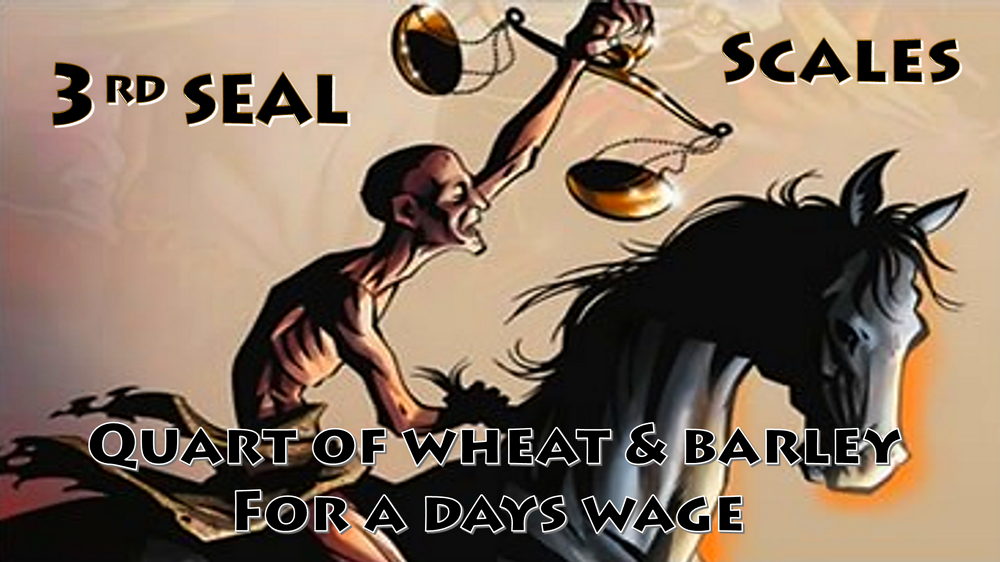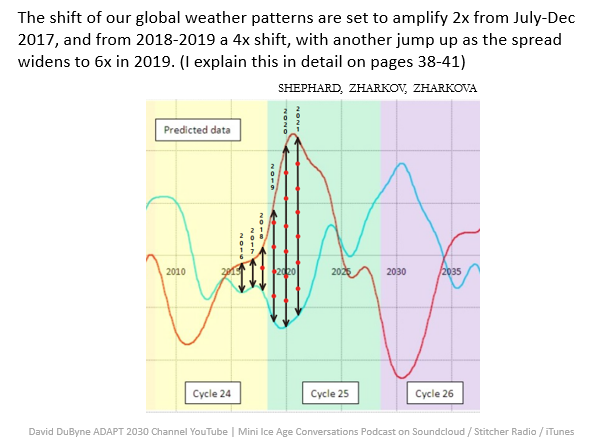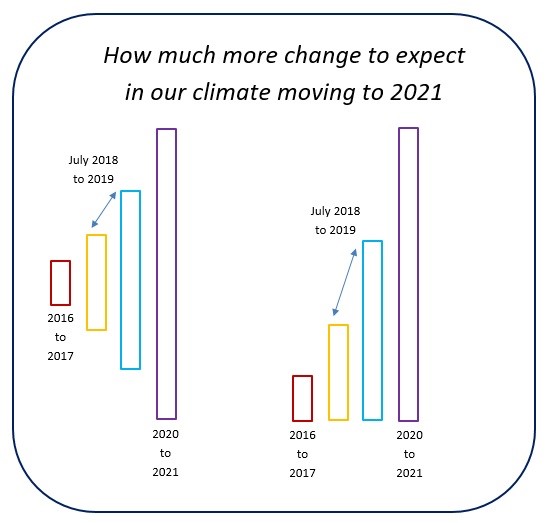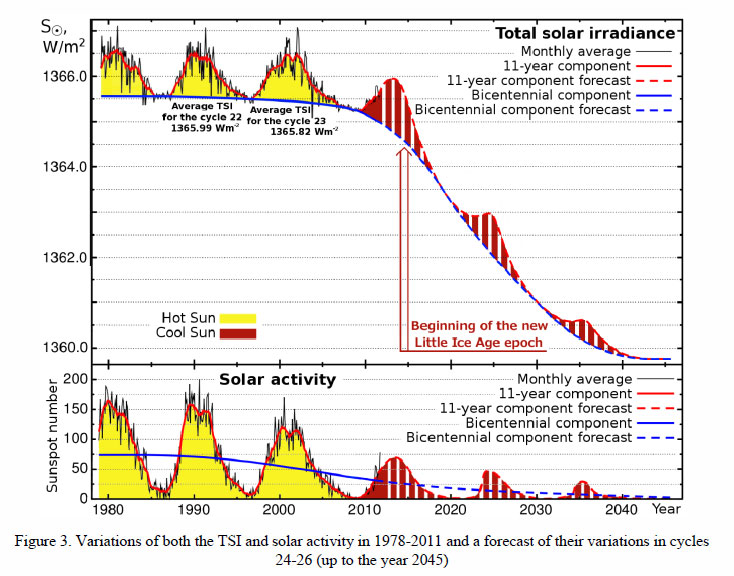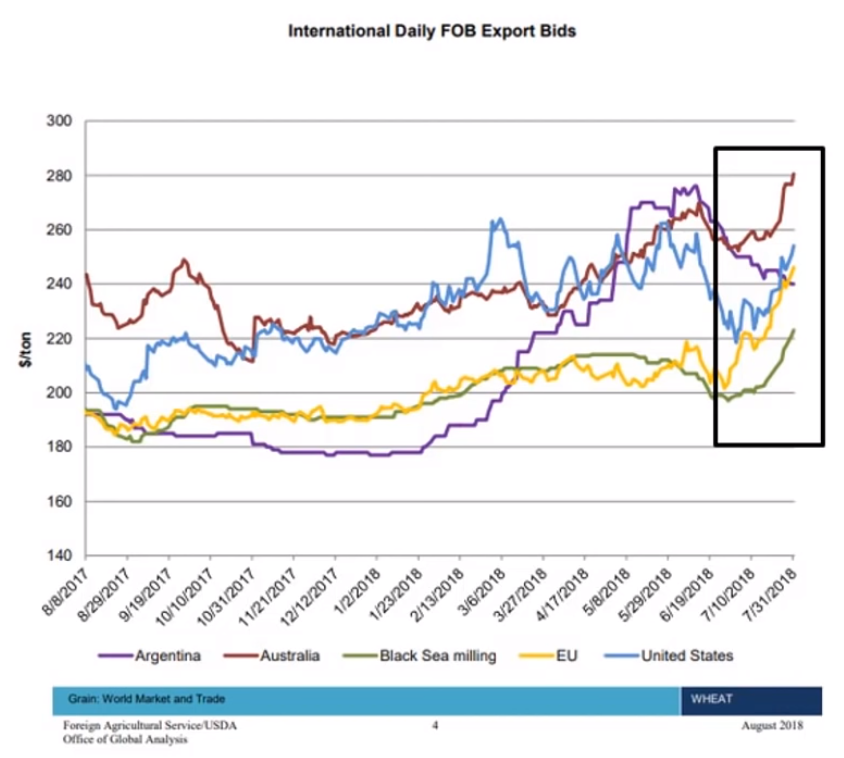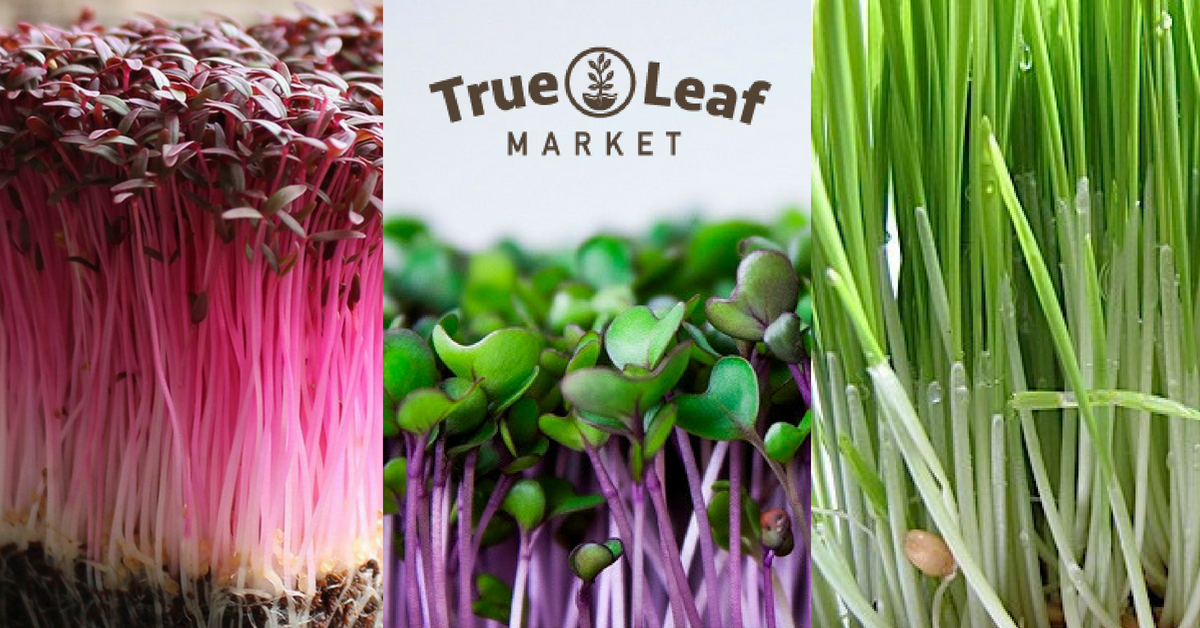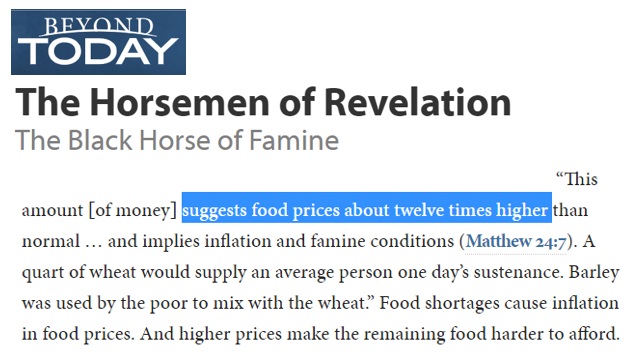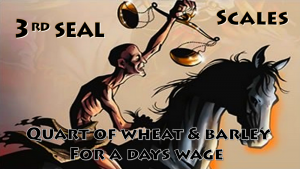 The new Economist Magazine Year 2019 has a black cover, which is unusual because normally it is ornately decorated with predictions for the coming year, that is unless you can see the Black Horse arriving as the next broken seal. With the Grand Solar Minimum intensification ready to ramp up 4x through 2019, the symbolism is stark and seems to point to rising food prices and further declining global crop yields.
The new Economist Magazine Year 2019 has a black cover, which is unusual because normally it is ornately decorated with predictions for the coming year, that is unless you can see the Black Horse arriving as the next broken seal. With the Grand Solar Minimum intensification ready to ramp up 4x through 2019, the symbolism is stark and seems to point to rising food prices and further declining global crop yields.
Black Horse of Famine “GSM Seal” is Broken: Economist Magazine Cover
We're all familiar with The Economist magazine, putting out their yearly cover with messages contained in the artwork about world events that will transpire the following year. There were messages about a reset of the economy in 2018 with a Phoenix rising from the ashes. Here we are now, The World in 2019, this is the first time that the cover is nearly blank and you'll notice, it's black. It caught my attention because staring into the cover for a few moments, I was trying to get the meaning of what this obscured year represents.
Emails received referenced the Black Horse of the Apocalypse, about the famine, and the nearly black magazine cover within three days of each other. So coincidental and so fitting for what's coming up in 2019 and 2020.” I don’t believe that, that's just a random black cover on The Economist magazine. We are here with the Third Seal of the Apocalypse, with scales and a quart of wheat & barley for a day's wages.
Bring you in here for the forecast below. The lines are N/S magnetic field lines in the Sun, the wider these lines are, the more they come to a canceling effect. Lines with the red dots is how intense the weather system changes are going to become amplifying year on year. Think about everything through 2016, 2017, and 2018, those are the really small tick marks. In the yellow region of Solar cycle 24 that’s the transition point into the green region of Solar Cycle 25.
Meaning that we're coming into the regular 11-year Solar Minimum moving into solar cycle 25. Pay attention to how wide the wave becomes and the canceling effect is in turn going to create massive changes on our planet in terms of the weather system. Jet streams are moving out of flows and cloud bands are moving along with precipitation.
To get a better gauge, the visual presentation shows you how wide the split is and how much more change there is coming during these next couple of years. Since the Magnetosphere continues to weaken, Jet Streams and cloud bands are trying to adjust to these new conditions and establish new floes in the atmosphere. The most ferocious changes are going to begin right now and amplify through the next three years, until there's some sort of stabilization, probably from 2022 to 2025. Until that point, look at how much more change we can expet. The yellow bar is approximately where we are now2018, compared to where we're going, shown by the purple bar, 2022 to 2021. This would encompass the entire year of 2019.
What we've seen so far is a 10% global reduction in yields of wheat and a 30% global reductions in rye brought by droughts, massive floods, out of season cold, and the extreme heat from a new equatorial vortex that is formed. These massive changes match up with what would be considered, global food insecurity and not enough crops being grown for global demand.
As the decline in solar activity moves forward, so do declines in food production on the planet. This is a known fact. Your best hope of looking into a crystal ball to the future is nothing more than a history book. I encourage you to look at the Maunder Minimum in the 1600s, it is forecast to mimic and repeat something of this intensity or greater.
When The Economist magazine has a totally black cover and I feel it’s referencing the Black Horse, a kind of reset button for society. Economically, spiritually, mentally, population migration, and all types of events that you didn't think possible, are going to occur in these next few years.
It recorded that rye prices ware about four times higher during the Maunder Minimum when they had bad harvest years. This will also come into inflation for food, and as you spend more on food, the more the economy is going contract in other sectors. If you're spending all your money on food, you're not spending on movies, new electronic appliances, travel etc., and there's going to be a shift in the economy.
PDF of this Article Black Horse of Famine “GSM Seal” is Broken: Economist Magazine Cover
FULL VIDEO Black Horse of Famine “GSM Seal” is Broken: Economist Magazine Cover
"Help support the adapt 2030 channel on brighteon so we can keep grand solar minimum information free to access."
We are Repeating 14th Century Climate During the Wolff Grand Solar Minimum Minimum
https://www.brighteon.com/6010048421001
***Mini Ice Age Conversations Podcast***
iTunes: https://itunes.apple.com/us/podcast/adapt2030
Soundcloud: https://soundcloud.com/adapt-2030
Libsyn: http://adapt2030.libsyn.com/
***Support ADAPT 2030 by Visiting Our Sponsors***
ADAPT 2030 & My Patriot Supply
Taking the Fear Out of Difficult Situations
2-Week Food Supply with 92 servings
True Leaf Market Organic & Heirloom Seeds
ADAPT 2030 True Leaf Market Link
ADAPT 2030 Amazon Grand Solar Minimum Book Store
https://www.amazon.com/shop/adapt2030
*** Today’s Story Links ***
First Snowfall Blankets Ifrane with 30 Centimeters
https://www.moroccoworldnews.com/2018/10/256391/morocco-ifrane-snowfall-blanket/
Black Horse of Famine in the Seven Seals
Egypt’s police step in to combat potato shortage
https://www.miamiherald.com/news/business/article220836445.html
Duterte warns of raids on rice warehouses
https://www.philstar.com/headlines/2018/09/03/1848227/duterte-warns-raids-rice-warehouses
*** ADAPT 2030 Social Media Links ***
PATREON www.patreon.com/adapt2030
YOUTUBE ADAPT 2030 Mini Ice Age 2015–2035 Series on YouTube
BITCHUTE https://www.bitchute.com/hashtag/adapt2030/
BRIGHTEON https://www.brighteon.com/channel/adapt2030
STEEM https://steemit.com/@adapt2030
MINDS https://www.minds.com/ADAPT2030
MEDIUM https://medium.com/@globalcooling
FB https://www.facebook.com/Miniiceage
TWITTER https://twitter.com/adapt2030


